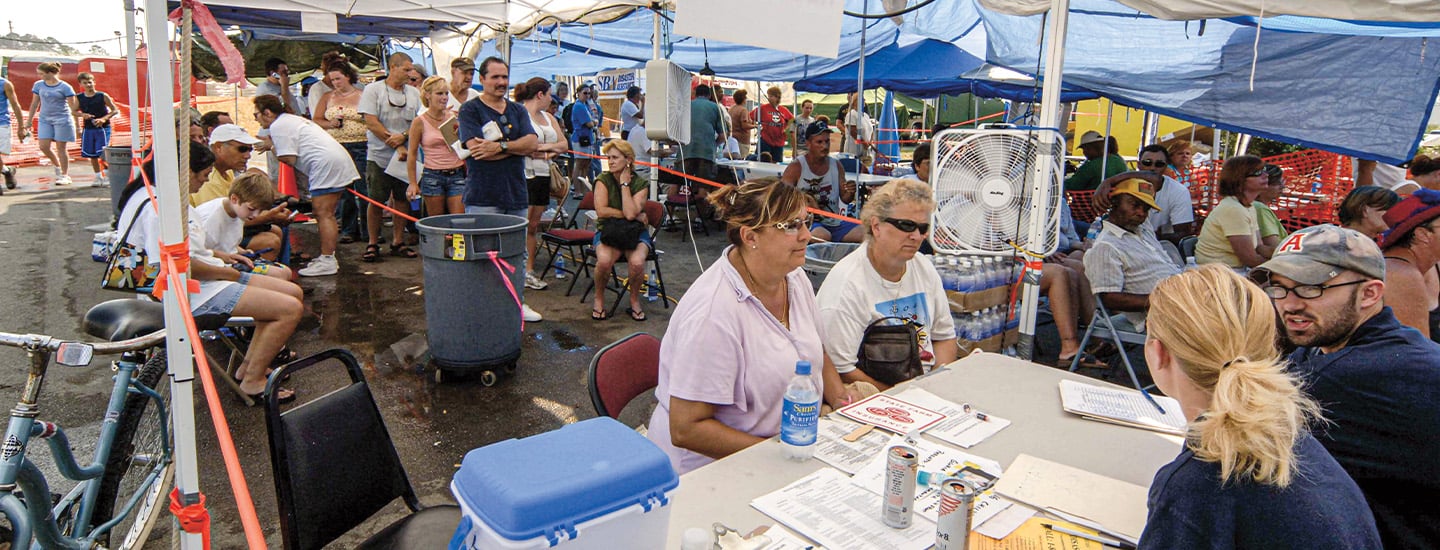Why did you go where the hurricane had hit?
I was the director of a nursing facility. I knew I had skills that could come in handy, and I really wanted to help. So I flew myself to Alabama and connected with the Red Cross. We volunteers were divided by skills and occupations and dispatched in groups to surrounding areas. I was sent to Kiln, Mississippi.
What was it like in Kiln?
There was nothing left of the homes but the concrete foundations. Railroad tracks had been raised out of the ground and twisted like pipe cleaners.
What was your first reaction?
It was devastating to see so many people searching for loved ones. We were using a middle school as a headquarters. Staff stayed in the school, and people displaced by the storm stayed in the gymnasium. Military police volunteered to guard the campus, because a lot of looting happened after the storm.
What was your specific job there?
It was to triage each person who showed up seeking shelter. But I helped in other ways as well.
Was there food, water, and electricity?
For food, we ate military rations that were dropped by planes. Water was supplied by the military tanks that came through. Everything was divided and rationed out to everyone. Children were always fed first. Supplies were limited, so the food had to be kept guarded.
We did have limited electricity, which was supplied by generators, but there was no cell service for the first two weeks.

